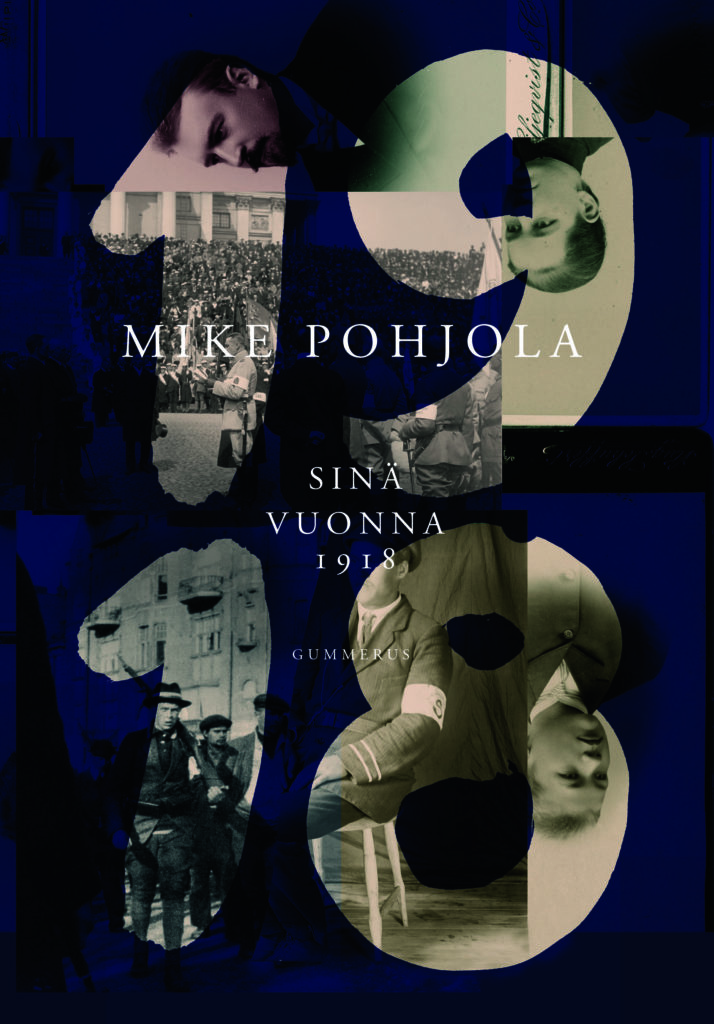I’m on a study project to improve my understanding of roleplaying games. To this end, I already have two reading projects, A Game Per Year and An Adventure Per Year. This is the third, with the goal of reading or playing 52 games made in the last few years. Originally I considered making this “A New RPG Per Week” and that’s where the number 52 comes from, even though a weekly schedule is probably not within my abilities.

Sinä vuonna 1918 is a novel by the Finnish writer and game designer Mike Pohjola about the Finnish civil war of 1918. Somewhat lamely, I translated the title as “The Year 1918”. In Finnish the title means both “You In the Year 1918” and “Occurred During the Year 1918”.
The distinction is relevant because it plays into what the book is and why I’m writing about it here. Pohjola has described it as a “roleplaying novel” and the title is justified. It’s a “Choose Your Own Adventure” novel in technique but with significantly grander ambitions than any CYOA book I’ve read before.
The goal of the novel is to create a simulation of the Finnish experience of the civil war. You start as an orphan and can end up in wildly different circumstances and lifepaths depending on how random chance and deliberate choice guide you.
The choices you make also define who you are. The point-of-view character starts as a blank slate and acquires personality traits as you read on. In this way, reading the book resembles a solo roleplaying experience. Later in the book, you start making choices based on what your character would do, guided by an idea of the character that exists in your head, not on the page.
You start to think of the character as “me” the same way you do in a roleplaying game or a larp.
I read (played?) the book through six times, aiming for different fates. Twice I ended up with the capitalist whites, twice with the socialist reds, once as a civilian and once as a fugitive trying to hide from the war in the forest. These were the successful readthroughs. I also died a lot, of the Spanish Flu, in front of a firing squad, starving to death in a basement hideout, in the war, and so on.
Two readthroughs stand out in particular. The grimmest one was of a red woman who fought briefly with the Red Brigades and ended up in the concentration camps after the war. She avoided dying of sickness but experienced many of the other horrors there.
The longest readthrough was of a man who ended up on the side of the whites. He started as an abused servant in a rich household who nevertheless fought for his tormentors. He managed to be imprisoned or confined three separate times. He ended up leaving Finland for a life as a sailor, too scarred to continue his old life.
The book’s design is the most sophisticated of what I’ve seen in the CYOA genre on paper. As you read through it, you gain attributes which then affect your future choices. Two stand out, Wound and Trauma. Half of my characters ended up with a Wound and all with a Trauma.
The only character who went through the experience almost unschathed was my second character, whom I dubbed “Psycho White”. He was a white young man who always chose the most violent possible option. He killed people, fought in battles and volunteered for a military adventure in Carelia. He even murdered some of his own people for the crime of being too publicly bloodthirsty.
The book takes great care to give a lot of options for character background. You’re an orphan but you’ve still come from somewhere. You can choose your gender, where in Finland you live and possible minority background such as Russian, Tatar or Jewish. Some of the happiest experiences I had were with the Jewish and Muslim Tatar characters who had the support and love of their religious communities.
The attributes you acquire during play can have far reaching consequences. My second red character was doing pretty well with a job at a machine shop. When the confrontation with the whites over control of a train station came up, he opted for negotiation instead of violent assault. One of the whites recognized him as the same kid who had sung the Internationale at the beginning of the book at the orphan auction.
Off to the firing squad he went.